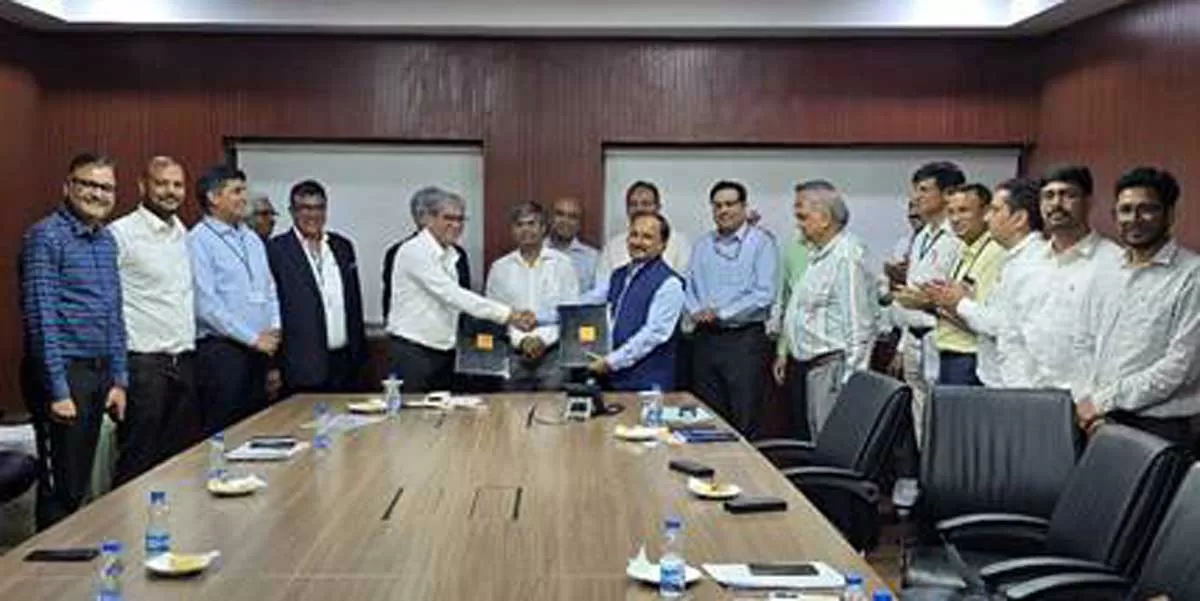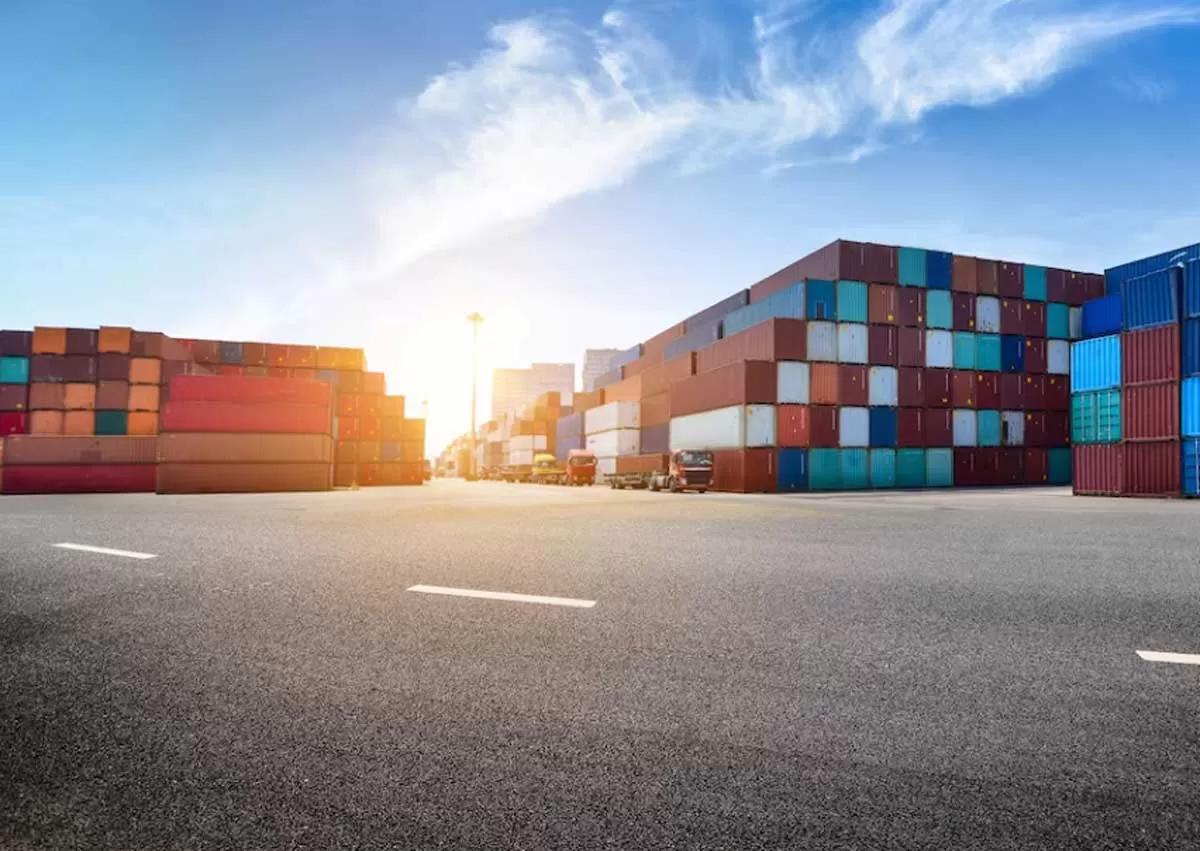<p>RICS is a global professional body promoting and enforcing the highest international standards in the valuation, management and development of land, real estate, construction and infrastructure. Operational in India for the past 10 years, the body strives to be the built environment solution for India, ushering in a new landscape. <span style="font-weight: bold;">Dr Sean Tompkins, Chief Executive, and Chris Brooke, President Elect, RICS,</span> share some initiatives and their view on the Indian market, in conversation with <span style="font-weight: bold;">SHRIYAL SETHUMADHAVAN and SERAPHINA D'SOUZA.</span></p>
<p><span style="font-weight: bold;"> How would you position India at present?<br />
Dr Tompkins:</span> India falls into the category of a country with massive needs for new cities, huge levels of population growth and urbanisation. What makes the most effective real-estate construction markets is openness, transparency, regulation and skills in professionalism. </p>
<p>And, in the past three to four years, we have seen India deal with demonetisation, RERA, encouraging urbanisation and a desire to get the right professionalism into the real-estate construction industry. </p>
<p><span style="font-weight: bold;">One of the major challenges India faces is skilled labour and there is a lot RICS is doing in this regard...<br />
Dr Tompkins:</span> With the need to create the 100 smart cities of the future, we realised there was a need at the education level. India has developed many engineers and architects. But when it comes to real-estate financing investment -things like construction, cost consultancy, project management - India actually did not have as many of these in the market. So, we recognised the need to take a role in education. We teamed with Amity University to build the RICS School of Built Environment, to create the future professionals required. We have already had 1,500 graduates since 2013. We hope to bring 10,000 professionals to the Indian market within 10 years. Given the volume of construction and development, this is a significant number to help the 100 smart cities. </p>
<p> <span style="font-weight: bold;">How do you see the Indian market adapting to sustainable technologies or green construction?<br />
Dr Tompkins: </span>India's thinking in terms of technology is quite advanced, and this could be a huge advantage. Here, we are training a number of people in professional skills in construction and real estate, but India already has a history of technology and the ability to be able to move technology at a pace. India is doing a lot of great work with advancing technology, particularly around data. And if you start to link in the power that we are all going to have in our pockets - to use and analyse complex volumes of data using artificial intelligence and being able to assemble all these things - India is going to be in a great place. Ultimately, we will be the power engine of economies. What we are teaching at RICS, is how humans relate to machines, and this probably is the biggest challenge coming through for the next generations. It is going to be about how we use the power machines to give us the ability to completely change the dynamics. </p>
<p> <span style="font-weight: bold;">Globally, in terms of technology, how would you position India? <br />
Dr Tompkins: </span>The first point here is at what level has India adopted international standards? What we are doing at RICS is encouraging international standards. Today, we have something called a international construction measurement standard, which provides a clear understanding of how cost structures are complied within a construction and infrastructure project. Similarly, we have an international property standard that tells us how we measure a building. So, the critical thing is to get India to harmonise international standards. The technical skills are there; data science skills are clearly developing in India; there are a number of prop tech data start-ups in India looking at the way in which data can be used within the building environment. It needs to pipe into the standards and regulation, which is going to be critical to make this work. </p>
<p><span style="font-weight: bold;">Brooke: </span>Speaking about the global context, India is not that far behind. In some of the more mature markets, the challenge is adoption. Some adoption results in significant disruption of long-established business practices and there is a bit of a resistance to change. India is in a different position to look forward, if it adopts these things in the future without having to try and retrofit into the past. </p>
<p> <span style="font-weight: bold;">How are you creating awareness to keep the industry informed to adopt technologies?<br />
Dr Tompkins: </span>A big part of our work in 2019 would be to encourage the already established professionals in the industry, helping them embrace technologies that are available. One thing we are doing is ensuring that standards are embedded in the technology, so you can actually trust it. We are working with tech and data companies to provide standards they can use within their own development. </p>
<p>That is a big encouragement of existing professionals to embrace technologies. One of the most important things for this industry is to not stay in silos any more. We need to encourage collaboration. </p>
<p><span style="font-weight: bold;">Brooke: </span>We are also ensuring to engage with different types of stakeholders - whether it is city leaders, big investors, developers or end-users of those professional services - to clearly understand what they are looking for as clients, so that we can get a holistic picture and start converting that into a view and see how it is going to affect various skill-sets in the profession.</p>
<p> <span style="font-weight: bold;">RICS has also established the World Built Environment Forum. What is the role of this forum and how do you see it contributing to India's growth?<br />
Dr Tompkins:</span> We are bringing the World Built Environment Forum to India in 2020. Basically, the idea to build an environment forum is to bring together all the leading thinkers from across the different parts of the life-cycle of construction and real estate and how can we learn from other industries. We see a big part of our role just hoping to spread great knowledge and best practices and the World Built Environment Forum is set up to do that. While the forum will be coming to India in 2020, one of the big encouragements would be to see a lot more Indian professionals coming to some of these global events. </p>
<p> <span style="font-weight: bold;">What are your future plans for the Indian market? <br />
Dr Tompkins:</span> We are working heavily on getting standards adopted. We are looking at and supporting the whole movement around valuation, registration and regulation. We plan to help create more volumes of professionals in this market. We also recently met with the Prime Minister's Secretary to talk about the value regulation in India. We have been regulating 14,000 valuers in different parts of the world for many years. So we have some experience and we shared some of those insights. We have put a significant investment into India, developing schools in Mumbai and Delhi. We have the largest number of employees outside the UK here in India.</p>


















